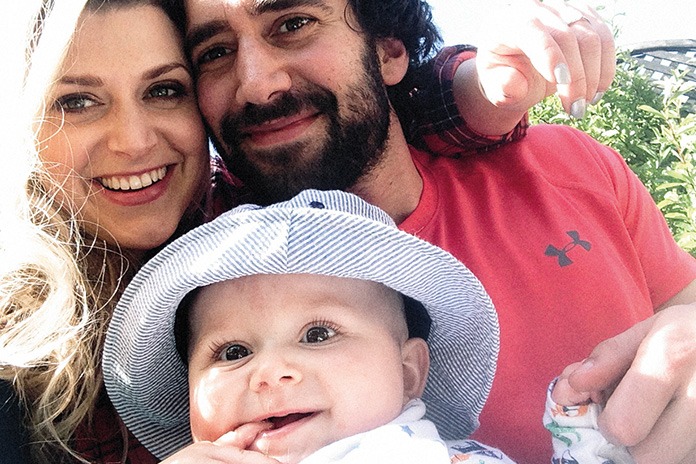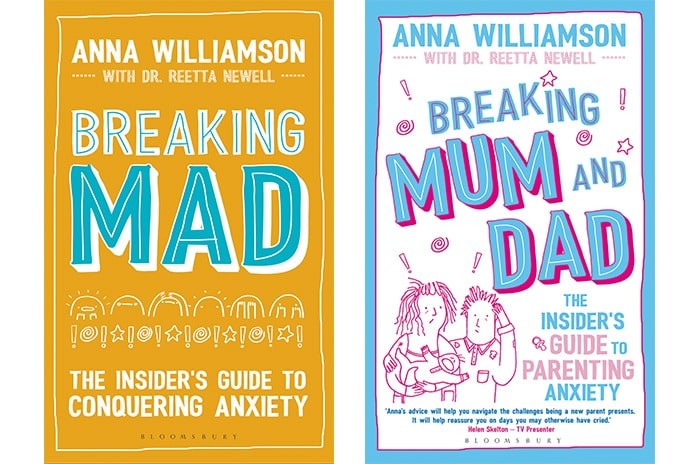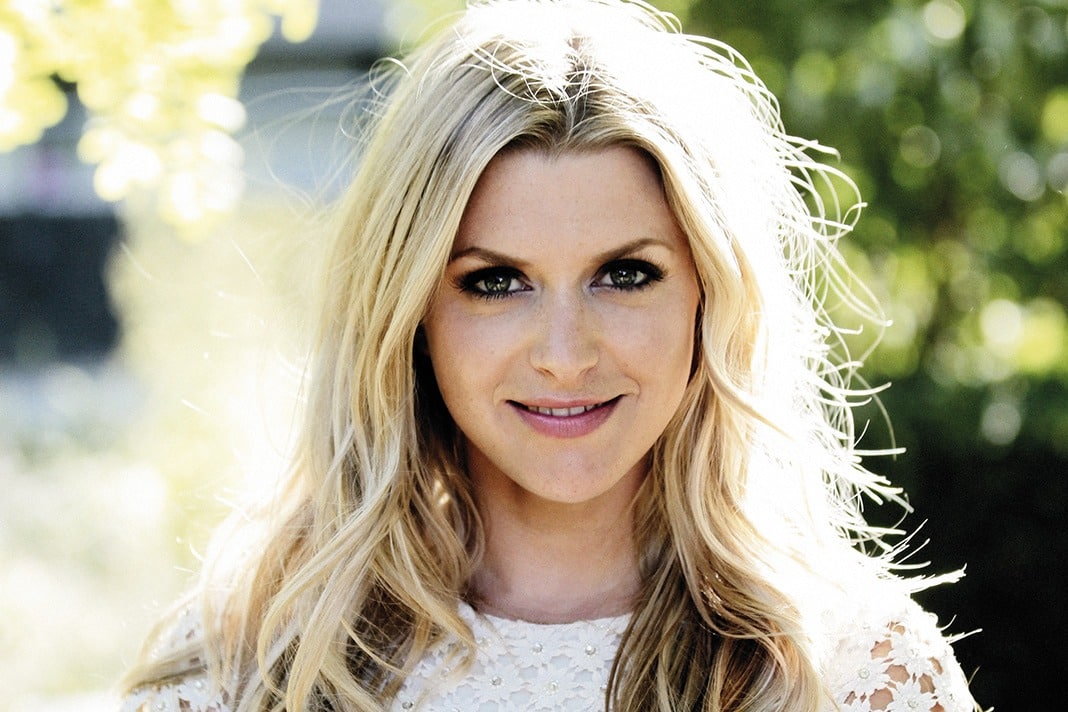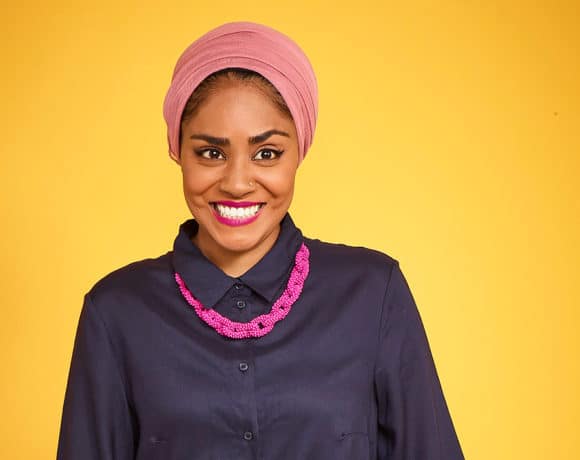Anna Williamson – TV presenter, broadcaster, counsellor and mum – answers Absolutely Mama’s most pressing questions on mental health…
Words Katey Gillett
You may well recognise mum-of-one Anna Williamson from the telly; from This Morning, Big Brother’s Bit On the Side or the National Lottery Xtra – to name a few. She’s a well-known and very successful TV presenter and radio broadcaster, but, early on in her career, Anna struggled with crippling generalised anxiety disorder behind closed doors. Bravely, she spoke out about her experiences and quickly realised she had to do something about the huge stigma attached to mental health issues.
In 2009, she qualified as a counsellor, life coach and Master NLP practitioner. She now runs her own private coaching practice, is an ambassador for Mind, Childline and The Prince’s Trust, and contributes to all sorts of magazines, TV and radio shows. She also wrote the bestselling book, Breaking Mad, as well as Breaking Mum and Dad: The Insider’s Guide to Parenting Anxiety.
Mental health statistics in the UK continue to rise – for mums-to-be, parents, and our children – at an alarming rate. There really has never been a more important time to talk openly and honestly about our struggles, like Anna does every day. So, as she launches a brand-new podcast, Loose Lips, and finishes off another book on mental health, Absolutely Mama puts our most pressing questions to her…
Q. The number of people suffering from mental health issues today continues to increase. Why do you think this is? What needs to change, do you think?
A. Social media and the general pace of life have had a big impact on people’s mental health. We are constantly measuring ourselves against other people on social media, which taps into our self-esteem and self-confidence, which then in turn can start to niggle our mental and emotional wellbeing. Finances and family relationships have all had an impact as well, as has loneliness, with one in 10 people in the UK reporting that they’re lonely. We need to start looking more at our own lives and enjoying and embracing who we are.
Q. The rise in mental health issues among millennials is well documented. But many of our readers are mums to young children and babies. What do you think the future holds in terms of mental health for this new generation? How should we approach this?
A. I think that now is the time for us to really start to get a grip on it, which is a good thing, as when we are aware of something we can start to do something about it. We need to start building support networks in our own lives, particularly for new mothers nowadays, as families tend to be more fragmented and distanced physically. This can lead to vulnerable parents feeling very alone and in desperate need of support.
Q. As parents, what should we be doing in the early years to make sure our children grow up with the ability to manage their emotions in a healthy way? What top advice would you offer our readers?
A. Communication is absolutely key. I am a huge advocate of communicating effectively and honestly. Allowing your child to explore their own emotions, ask questions, and have a safe and secure place in which to grow is absolutely key for their physical and mental health.

Q. As role models, parents obviously need to make their own mental health more of a priority. Many of us already know this, and try to do this, but still struggle. What advice do you have for those who feel like they’ve already tried and “failed”?
A. To be kind to yourself and to remember that you are human. Nobody has to be a perfect parent – no such thing exists. We just have to be good enough. Taking time out to put yourself first is really key as a parent. It might feel difficult at times; we really can’t be the best to anybody else until we are to ourselves first. Keep trying. You have never failed, nor will you, because you care.
Q. Certain genes can make you more susceptible to mental and emotional issues. Please can you tell us more about this? And how can someone find out more about their own (and their children’s) susceptibilities?
A. Mental health problems can be learned behaviour as well as hereditary. The DNA plan and Emotional Wellbeing Test is a terrific and groundbreaking test where you can check your DNA through a very simple mouth swab to see if you have any predispositions and potential mental health and emotional wellbeing issues and sensitivities. This can help you take preventative measures and look after yourself before any potential issue takes hold.
Q. Many mums struggle with their return to work, and many will return too soon – often because of the pressure they put on themselves to “bounce back”. What advice would you give new mums about returning to work in terms of a timeframe but also on deciding whether to return at all?
A. Every mother is different and will feel a whole cocktail of emotions. What you may have intended before you had your baby might not necessarily be the way you feel once you’ve become a mother. And it’s important to remember that that is okay. You are allowed to change your mind.
Communication with your boss and colleagues is really important to help them understand what you are feeling and intending to do, but also to relieve any pressure off yourself. Take your time, whether you want to go back to work or whether you want to stay at home, you are allowed to, and should, make the decision for you and your family unchallenged.
Q.Women who have just had their first baby will often struggle with an identity shift, not seeing themselves as the same person as they were before getting pregnant. Many of us find that difficult. What would you say to any women who may be mourning for their former selves?
A. Change can be really overwhelming, and more than a little bit scary. Having a child is one of the most overwhelming experiences physically, mentally and emotionally, and as somebody settles into this new role, it is perfectly normal to feel a bit strange and to mourn your previous life, and independence at times. Time is key, as well as talking to your loved ones, as you settle into parenthood. It will get easier, and you will make the decisions and choices that are best for you and your family to help you adjust.

Q. What is the most important thing mothers – and society at large – need to better understand about mental health issues in general, in your opinion?
A. That it is extremely common and normal to have times when your mental health may need a little bit of extra TLC. We all have mental health, therefore we should all take very good care of it. It is not a sign of weakness to ask for help at certain times, to say “no” to things, and in my experience talking about your feelings and offloading any stress and pressure is hugely cathartic and helpful in nipping any struggles in the bud.
Q. You’ve started a new podcast with Luisa Zissman. What can listeners expect from it? And how are you finding it so far?
A. I adore my friend Luisa. We have been friends for a couple of years now, we live near to each other and our children are the same age. We are such chalk and cheese and yet we complement each other brilliantly. Luisa is incredibly opinionated and honest, which I totally love about her, and I can be a little more pragmatic, however I very definitely have my own opinion on things too. We have very similar values on a lot of things in life, and we love a good gossip. We wanted to start Loose Lips podcast as a fun weekly topical debate, where no holes are barred. We aren’t afraid to say it as it is, and we love to get everybody involved in the chat that everybody is talking about and yet perhaps feel unable to truly vent. We are so grateful that the podcast went straight into the iTunes number one spot.
Q. What other exciting projects are you working on? What’s next for you?
A. I’m really enjoying my job as a talkRADIO and BBC radio presenter, as well as popping up on various TV programmes. I also have my third book out at the beginning of next year, which is all about teenagers and their mental health. I’m excited to launch this and hopefully make a huge impact on young people’s lives.
Listen to Loose Lips every Monday;






COMMENTS ARE OFF THIS POST